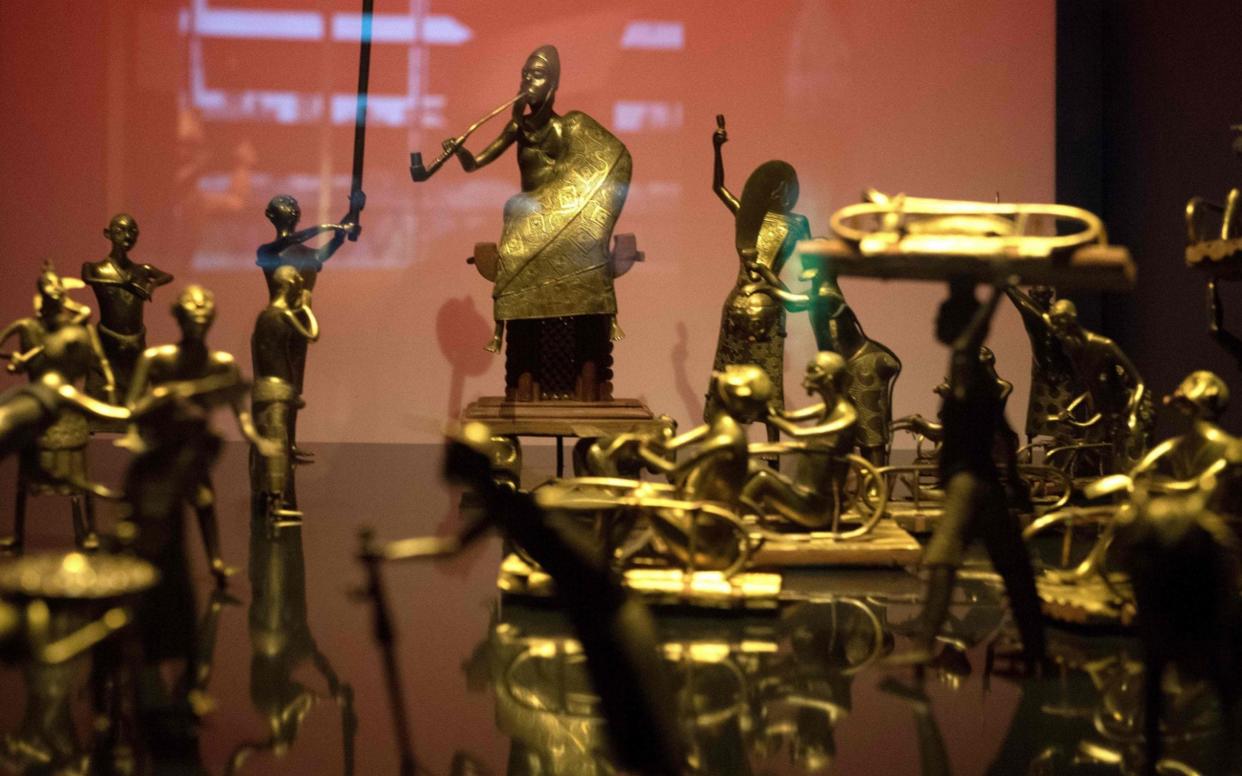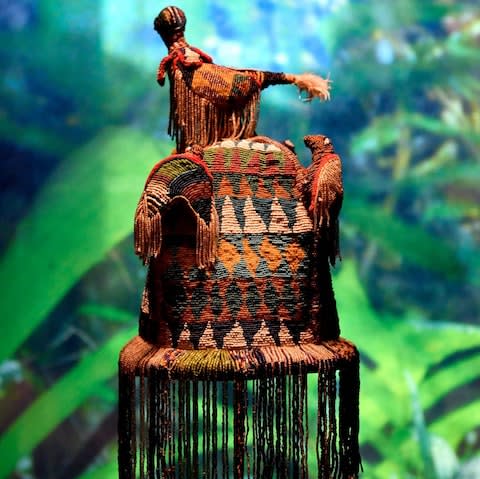France advised to change heritage law to allow return of African art to former colonies

Franceshould change heritage law to facilitate the return of thousands of African artworks pillaged or bought during the colonial era, a government-appointed report is to advise President Emmanuel Macron.
If approved, it would amount to a radical policy shift that could pile pressure on Britain and other ex-colonial powers to hand back long-held artifacts to their countries of origin.
The report follows a groundswell of calls to return cultural treasures in Africa, amid estimations that up to 90 per cent of its cultural heritage is in foreign hands.
France alone possesses around 90,000 African artworks, some 70,000 of which are at Paris' Quai Branly museum, founded by ex-president Jacques Chirac, a fan of African and Asian art.
Currently, French law strictly forbids the government from parting with what amounts to state property, even in clear-cut cases of pillaging.
But President Macron signalled he was prepared to consider change in a speech in Burkina Faso last year in which he said:"Africa's heritage cannot just be in European private collections and museums.
“Within five years, I want the conditions to be met for the temporary or definitive restitution of African heritage to Africa.”
Mr Macron tasked French art historian Benedicte Savoy and Senegalese writer Felwine Sarr to draw up a report on the issue.

Due for release on Friday but leaked to French media on Wednesday, the report suggests amending French law to enable the restitution of cultural works if bilateral accords are struck between France and African states.
The change would apply in particular to works held in museums which were "transferred from their original territory during the French colonial period," the report said.
"We propose changing heritage laws so that all types of cases can be taken into account, and the criteria of consent can be invoked," Ms Sarr told French daily Libération.
The experts said such collections were in effect depriving Africans of their artistic and cultural heritage.
Advocates of such restitutions welcomed the report. Marie-Cecile Zinsou, a daughter of Benin's former prime minister and president of the Zinsou Art Foundation in Cotonou said that while it would spark “howls of disapproval” from some quarters in France, notably the far-Right, it could unleash a cultural “shockwave” throughout Europe and Africa.
"Today it feels as if we're just a step away from recovering our history and being finally able to share it on the continent,” she told AFP.
The UK has resisted numerous and often impassioned calls to return artifacts to their countries of origin, including the Elgin Marbles to Greece and the Benin Bronzes to Nigeria.
On Tuesday, the governor of Chile’s Easter Island in the Pacific implored the British Museum to return the Hoa Hakananai'a, one of its most important statues and held for 150 years.

 Yahoo News
Yahoo News 
